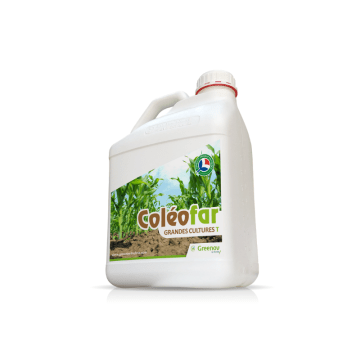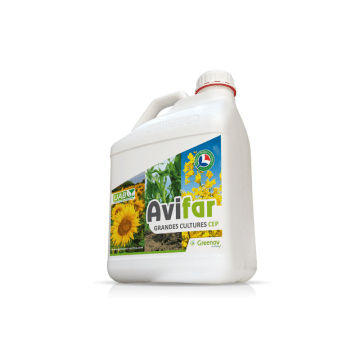A network to disseminate successful experiences on farms, Certificats d'économie de produits phytopharmaceutiques (phytopharmaceutical product saving certificates), etc. Under the Ecophyto plans, various solutions are being put in place to reduce the use of pesticides.
99% of rapeseed and potato acreage received at least one herbicide treatment in 2017. This figure is almost as high for all other French field crops (98% for wheat, 93% for sunflower, etc.). The quantity of active substances sold in 2018 was 21% up on 2017 (latest figures available).
At the same time, however, organic farming is making progress and the public is calling for a reduction in the use of plant protection products. The Ecophyto plans have been drawn up with this in mind, as well as to protect health and biodiversity. The first was adopted in 2008. The second (II) in 2015 and the most recent (II+) in 2018. The aim? To halve the use of pesticides by 2025. How do we achieve this? By making as many farmers as possible aware of the effective techniques and systems that have proved their worth on certain farms, and rolling them out.

The various initiatives in place
- the Dephy network, which aims to develop, share and disseminate successful experiments on 3,000 farms - including more than 1,500 arable/polyculture farmers. In arable farming, the work focused on the following aspects: food autonomy, crop rotation, simplified and non-tillage tillage, soil cover strategy, soil fertility and soil life. Initial results show that the IFT, the phytosanitary treatment frequency indicator, has fallen by 10% with the various solutions put in place - without taking into account biocontrols and seed treatments.
- Certiphyto. To reinforce training in the use of pesticides, users and distributors must hold a compulsory certificate of aptitude. This certificate, which is now valid for five years, is obtained after a training course that includes a test of knowledge and/or passing a test.
- CEPP. The "Certificats d'économie de produits phytopharmaceutiques" scheme is based on the implementation, until 2022, of actions - standardised and set by the Ministry of Agriculture - that help to save on the use of plant protection products. Distributors are encouraged to promote these actions to farmers.
In arable farming, around thirty actions have been identified, including biocontrol solutions, the introduction of resistant varieties, the use of agri-equipment, the deployment of decision-support tools and training. Here are just a few (not exhaustive), by crop:
- maize: using a biocontrol product to combat wireworms in maize;
- potatoes: reduce the number of fungicide treatments with varieties that are not very sensitive to mildew (Levante, for example);
- oilseed rape: replace autumn herbicides and insecticides by combining gelatinous legumes with winter oilseed rape;
- sugar beet: reduce the number of treatments against various diseases by using varieties resistant to leaf diseases (Athenea, Paprika, Cyprès, etc.);
- all crops: reduce the use of slug pellets with a suitable spreader. - the distribution of plant health bulletins. These present, by crop and by region, the health status of crops (stages of development, pest and disease observations, symptoms), an assessment of the phytosanitary risk, as well as regulatory messages.
- Ecophytopic, an online portal providing sector-specific information on integrated crop protection.
What about glyphosate?
The EcophytoII+ plan led to the creation of a Resource Centre to make existing solutions (by crop) for moving away from glyphosate accessible to the farming profession as a whole. In October 2020, after examining non-chemical alternatives, Anses recommended reducing the maximum authorised annual dose per hectare by around 60% for field crops. Glyphosate should also be banned in addition to ploughing.
These good practices are not systematic and need to be adapted to suit each crop. Our experts are here to help you consider all the solutions. Don't hesitate to contact them!
Sources
"Pratiques culturales en grandes cultures 2017", Agreste, January 2020 edition.
"Ecophyto II+ Plan", September 2018.
The Dephy farm network, November 2018.
Ecophytopic.fr
CEPP - Arable crop sectors, Ecophytopic
Arvalis
Beet technical institute
Glyphosate resource centre, Ecophytopic
"Alternatives to glyphosate in field crops", December 2019, Inrae
Anses
Talk to our experts
Natual is a range of plant-based nutritional supplements designed to support the physiological functions of farm animals and crops, and in particular their natural defences.


